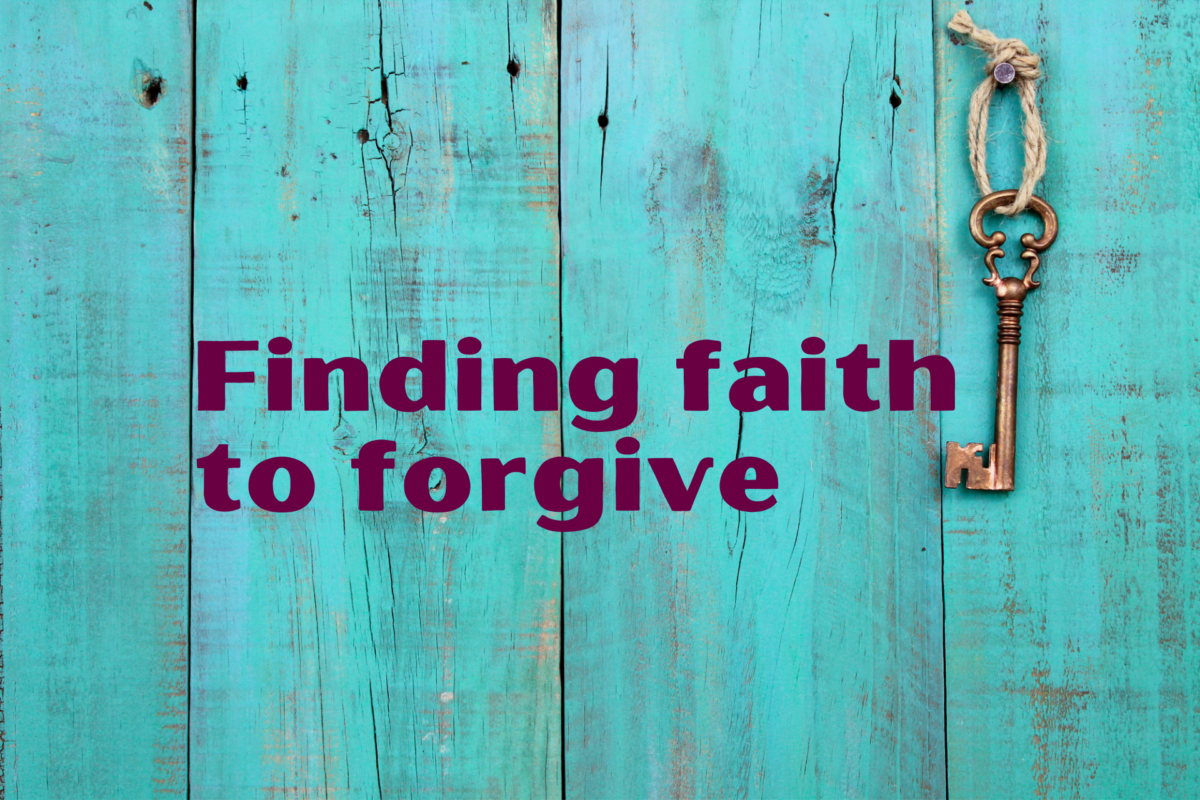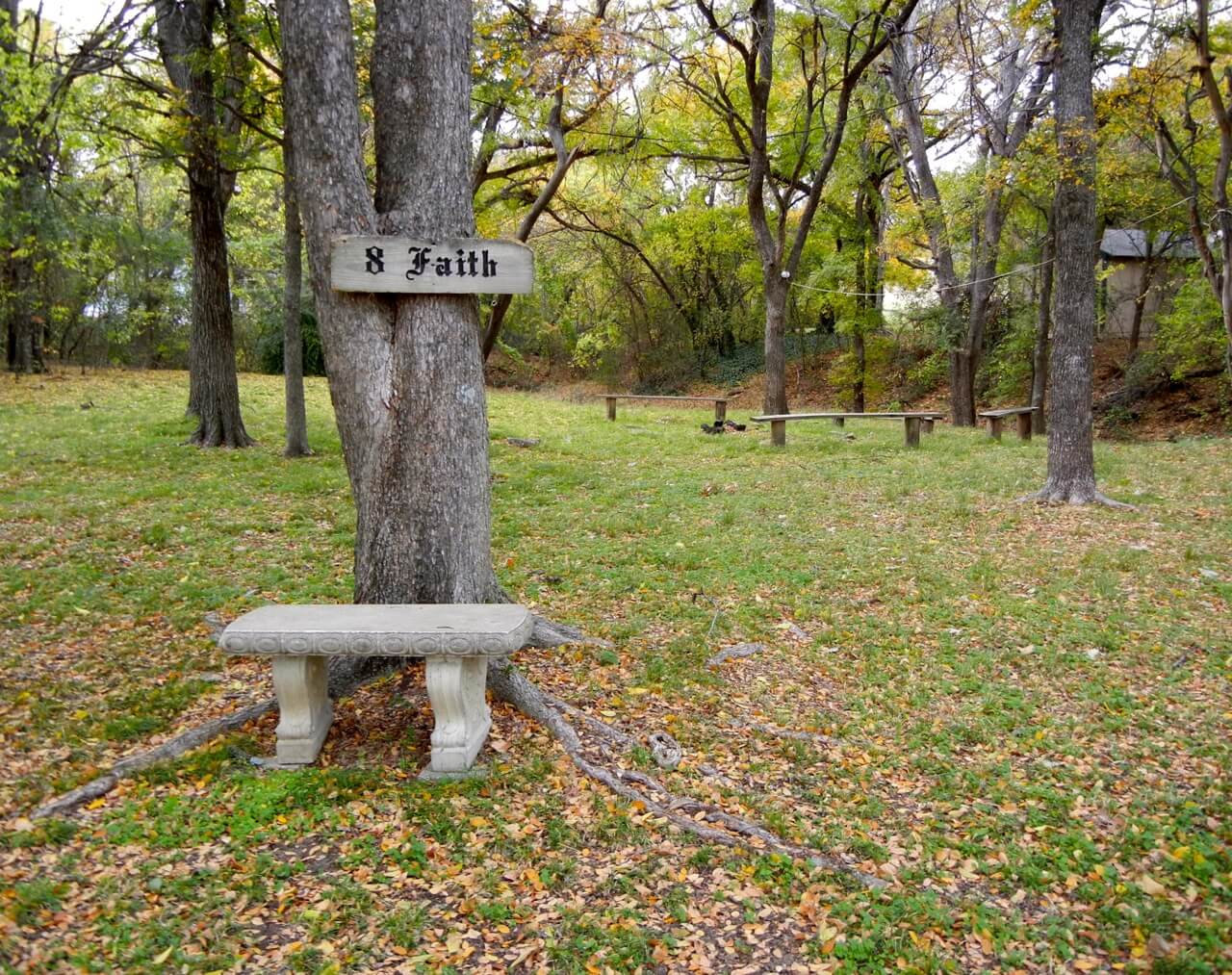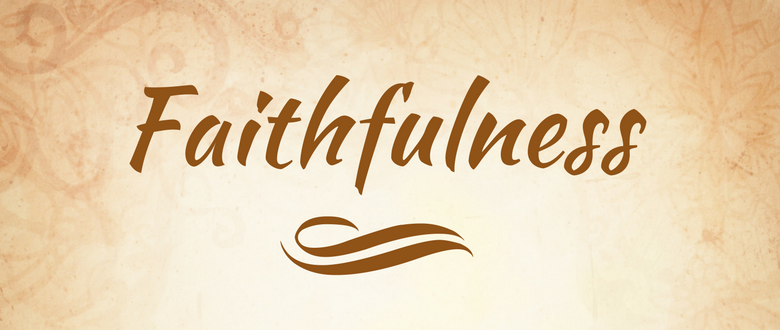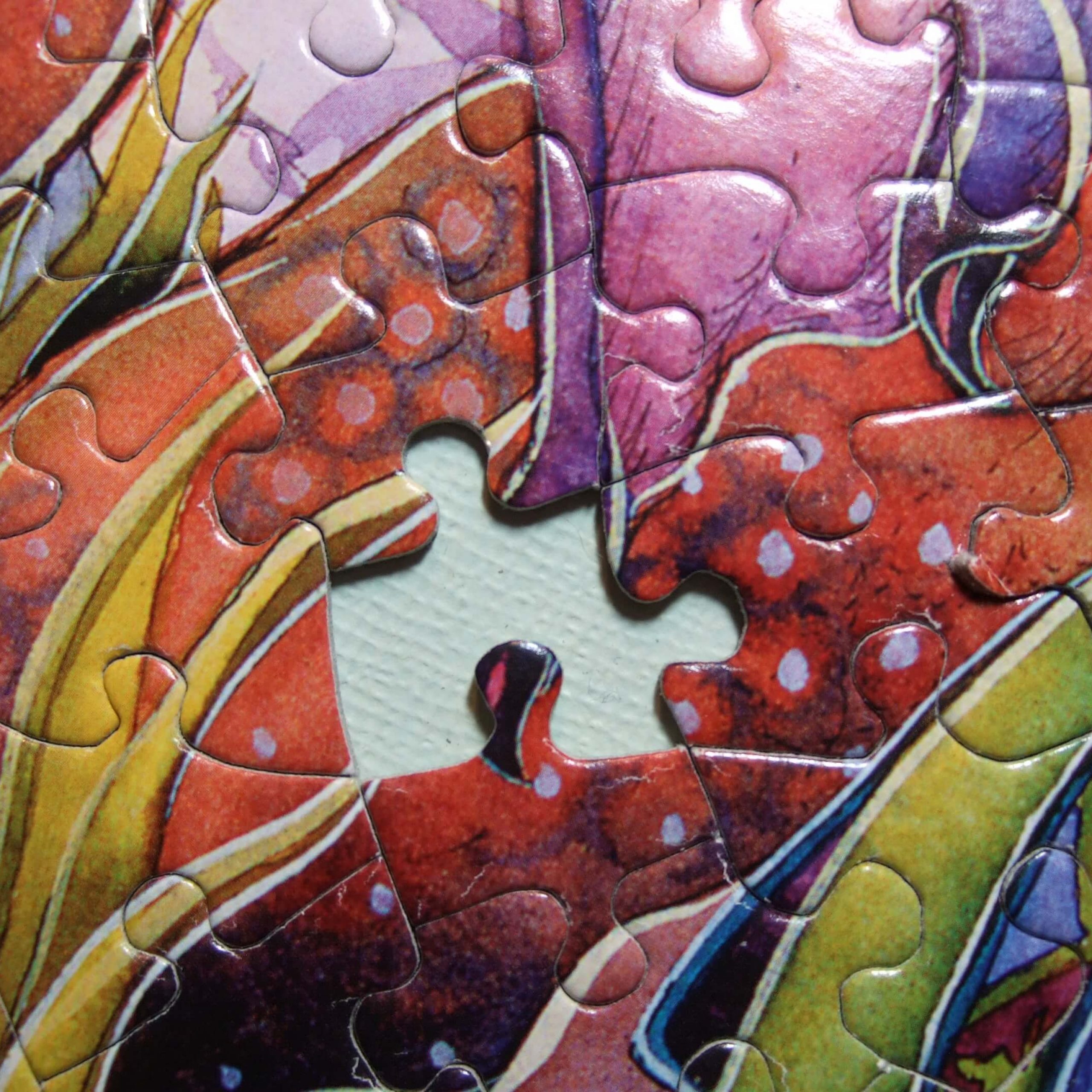
Forgiveness: The Missing Piece
We all know what it is like to be hurt, to be offended, to have another person sin against us. Trespasses against our joy often come in small but annoying daily servings, and occasionally in overwhelming, soul-crushing doses.
We all know what it is like to struggle with forgiveness. Forgiving others is often difficult, whether the issue is a major one-time violation of “the right thing,” or the exhausting repetition of disappointing, insensitive or hurtful behavior from that person in life you can’t escape and who seems incapable of change.
Yet we are commanded by God to forgive, and He gives no qualifications.
Unfortunately, God doesn’t give us an “out” if the pain of the offense seems too great to bear. He doesn’t give us a number after which we are excused from forgiving that repeat offender. In fact, Peter questioned Jesus about this very thing — Lord how many times must I forgive my brother or sister who sins against me? Up to seven times?
Peter asked on behalf of us all, and offered what he hoped would be the answer. Surely there is a limit to what God asks of us in this matter. But Jesus stuns Peter (and us) with his answer: Not seven times, but seven times seventy! (Matthew 18:21-22)
In other words, forgive as often as the trespass occurs. Every time, all the time. Don’t even think about not forgiving.
Just to drive the point home, Jesus told his disciples that if they did not forgive someone, Father God would not forgive their own sin!
Think about it. God feels so strongly about forgiveness that He essentially withholds His blessing, favor and forgiveness until we obey Him in this.
If there ever was a reason to say “whoa, Nellie!” or “Selah,” this is it. It is that stark, that stunning, that consequential to our spiritual well-being and relationship to God.
When Luke included this exchange in his Gospel, he added the disciples’ response to Jesus “seven times seventy” announcement:
“Lord, increase our faith!”
Luke 17:3-5
I cannot think of any other outburst like this from the disciples. Not even when they failed to drive out a demon. God’s requirement of absolute-every-time forgiveness brought them face-to-face with their inability, and/or unwillingness, to do so. It does the same to us.
As a counselor, mentor, and fellow human, I know how hard it can be to forgive. Yet we must, if we want to honor God, show an appropriate fear of the Lord, and remain in His good grace and favor.
Why is it so hard to forgive?
The answer is pretty universal: “Because they’ll get away with what they did to me.”
I have experienced this. Every time I have been wounded by another, the demand to forgive looms before me. Everything in me wants to do something else. I want to make them feel my pain, to understand how much it hurts. Frankly, it feels right to make them pay a price for what they did to me, so they don’t just get away with it. All these urges add up to the fact that what I really want is justice. And change.
Most of us aren’t vindictive enough to want to hurt someone back, but we probably wouldn’t mind if our offender suffered enough to know what it feels like, so they will change how they treat us. We are hungry for justice. We want them to treat us right from now on. Something in us wants to withhold our forgiveness until we are satisfied about ll these things.
Unless this hunger for justice goes away, forgiveness will never be easy. But the fact of the matter is:
Your hunger for justice will never go away.
And here’s why: you are made in God’s image. God loves justice; it is one of His highest values.
Because we are made like him, we will always crave justice until we get it. The hunger for justice is built into our God-given DNA and will never fade away.
In His Word, God often pairs “righteousness” and “justice” together.
The Lord loves righteousness and justice; the earth is full of His unfailing love!
Psalm 33:5
I believe God presents these as twin concepts because they are inter-related. Righteousness is doing the right thing for the right reason at the right time. When this happens between two people, it is called justice. When righteousness doesn’t happen, someone in the relationship may suffer an injustice.
Righteousness is essentially a relationship word.
Why does this matter? Because all trespasses occur in the realm of relationships. Righteousness has little meaning apart from the context of two people interacting with one another. We all want to be treated right. We don’t go around thinking about justice, but when we are not treated right, the hunger for it can easily consume us. When someone leaves us starving, denying us whatever was right in that moment — be it truth, fairness, kindness, or loyalty — it makes us angry.
Anger is the default response to injustice. If that anger abides, it can eventually consume your heart and morph into things like bitterness and grief. Unless and until justice comes, it is hard to discharge that anger. Enter our Creator God, and His command to forgive.
We are children of an understanding, justice-loving God.
God calls himself our Father. As Savior, He laid down His life for us. As Spirit He dwells with us and experiences our feelings. He knows, He understands, He registers injustice with us.
Father, Son and Spirit have all experienced unrighteous treatment in relationship. In fact, you probably give them many opportunities to forgive you. I’m quite sure I have.
As a very young Christian, I remember struggling with forgiveness and saying to God, But you never had to endure THIS thing, Lord!
Reading the Bible through a time or two cured me of that ignorance.
No, God has never been an abused wife or suffered any number of awful injustices, but that is not the point. The point is He has, in relationship to His creation, experienced anger, grief and despair over injustices committed against Him, and not to mention what He witnesses between his children.
If you want to know the depths of God’s anguish and anger over unrighteousness, go read the Prophets Isaiah, Jeremiah and Ezekiel. Read what Jesus said in the gospels. Remember what He endured as a man like us. He knows and understands exactly what it is like to live in a flesh body, in a world of men who can and will do all manner of things to you that are unjust and unrighteous. Much of which is not against any law made by man, but all of which violate God’s two greatest commands, to love God with all your might, and to love your neighbor as yourself.
Knowing what forgiveness will cost you, the Lord still says, “Hands off of obtaining your own justice. I will take care of that.”
Never take your own revenge, beloved, but leave room for the wrath of God, for it is written, “Vengeance is Mine, I will repay,” says the Lord.
Romans 12:19 (NASB)
Forgiveness does not require us to overlook unrighteous treatment.
The person who trespassed on your heart will NOT get away with it. However, God insists that we must not go after our own justice.
Waiting on God for justice while offering forgiveness presents us with a dilemma.
First, we may not actually get to witness the justice God will give us.
Second, while we take God’s justice for us on faith, the person who has hurt us may continue to do so. Which God knows, and why He commands us to forgive even the same offense again and again. [However, please see Note at *** below article.] People are notoriously resistant to change and slow to get there. You can’t make them do it, and it is really not your job.
Furthermore, we must acknowledge that God doesn’t make people change or be good. After all, if He was in that habit, wouldn’t He have made this world much better world already? He gave us all free will, and doesn’t take it away.
You can’t change the world, the weather, or the economy. And God is never going to back down on his demand that you forgive.
Dilemma: you are now wrestling with God, not your offender
While we feel like other people and what they do to us is the problem, our greater problem is God’s immutable laws of love and forgiveness, and His rightful claim as the only True Judge of hearts.
In the most painful moment of my life, struggling with forgiveness, I suddenly realized I was actually wrestling with God, not my offender. My focus had been on the person who hurt me, but in a blazing flash of insight from the Spirit, I saw that this person wasn’t asking this sacrifice of me — my God was.
The offender may or may not ask for or seek forgiveness. They may be entirely oblivious to how they have hurt you, much less care about being forgiven.
God himself was creating the dilemma. My problem wasn’t just what they did to me, it had become God asking me to deny myself. My good Father, my Faithful Friend, my Savior who loves justice. God’s demand makes forgiveness more of a relational issue between us and Him than between us and our offender.
As I focused on the hurtful person and what they had done, God simply stepped in between us, asked me to cease seeking my own justice, and release my need for that into His keeping.
God has walked in our shoes. Jesus knows exactly what forgiveness demands of us. It was demanded of Him in the most extreme of circumstances. Jesus understands the all-consuming hunger for righteousness and justice, and craves them, just as we do. We naturally expect His promise of abundant life to encompass the satisfying of these desires. How can life be abundant otherwise?
God’s solution for your dilemma
Blessed are those who hunger and thirst for righteousness, for they shall be satisfied.
Matthew 5:6
This verse is typically interpreted as being about your hunger to be righteous, like God is righteous. No doubt, this is accurate. Yet one day as I read this verse, the Spirit opened my eyes to a broader understanding of this promise. When I then understood was God himself was promising to satisfy my heart whenever I was hungry and thirsty to receive righteousness from others, yet left starved by them. I don’t see this as a true that replaces our original understanding, but as two sides of a coin of truth. There are many of these in Scripture.
Ultimately, the presiding truth behind Jesus’ statement in Matthew 5:6 is that God satisfies all hunger, thirst and need of His creation. This truth is witnessed to many times throughout scripture:
You open Your hand and satisfy the desire of every living thing.
Psalm 146:16
Jesus said to them, “I am the bread of life; he who comes to Me will not hunger, and he who believes in Me will never thirst.
John 6:35
Of course, Jesus wasn’t merely referring to literal, physical hunger and thirst. We must have these sensations in place, so that we will continually seek what we need for life. Likewise, we will experience hunger and thirst of soul and spirit, which Jesus clearly and repeatedly promised to satisfy. Not by dropping some miracle (manna) from heaven to temporarily fill your empty place, but by deep connection to His Spirit. “He who comes to Me….” will not remain in a state of hunger or thirst.
The missing piece in God’s picture of forgiveness
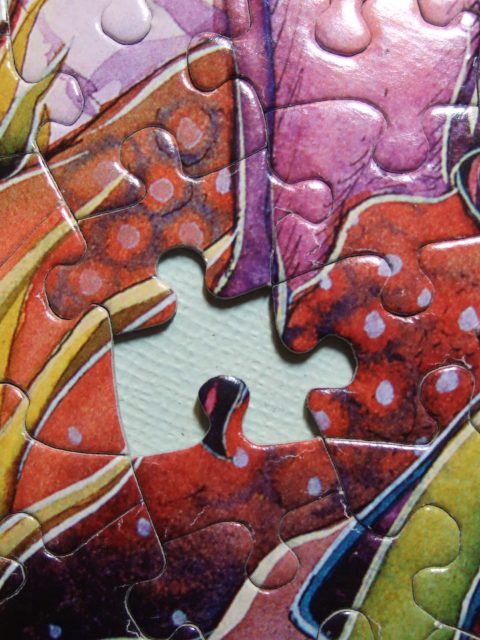
This was an “Aha” moment for me. I saw for the first time that the God who created my hunger for justice, who then asked me not to seek my own justice, also promises to satisfy my need for justice. If I could truly believe this about Him, if I trusted God to fill this need of my heart… I could let my offender go. I could forgive, because I would know he or she would not get away with what they did.
I could release the offender, trusting that God would not only see to my justice, but as I obeyed God to release them from my own judgment, I could ask the Spirit to satisfy my heart’s hunger for justice, according to His promise.
It made such sense that this would be the key to God’s demand that I forgive. This was the piece I had been missing in the forgiveness transaction.
I tested this revelation out, right away.
By that I mean, I pulled my heart away from staring at the offender and the pain they caused me. Instead, I looked right at my God and his demand. I made a choice to trust Him, and prayed something like this:
“God, I choose to forgive _____, though I feel powerless to do so. I make the choice to release all judgment to you. I trust you to give me justice. Because you have asked this of me, and because you have promised to satisfy the hunger of my heart, I ask you to satisfy my hunger for justice in this matter. Thank you, Lord, for setting my heart free. In Jesus’ name, Amen.”
This all came, you won’t be surprised to hear, in a moment when I was terribly wounded by someone I loved. Saying these words was not a nice, quiet, prayer. Frankly, I wept in grief as I held out what truly felt like piece of my heart, yielding it up to God. We do hold onto our pain because it is a part of us. Letting go of it is hard; I grieved as if dying to something that mattered more than anything in the world. But I was determined to trust God and test His promise.
As I wept, the tears became a release of pent-up pain to God. I felt the anger flow out of me. Relief came. I felt rest in my soul and spirit, and I felt the Lord’s great comfort. It was miraculous. It was the grace of God, meeting me where I chose in faith to believe Him.
No longer resisting Him, no longer forcing Him (by my unforgiveness) to resist blessing me, I was resting against His heart again, where I belonged. And free. Wonderfully free. My freedom had not come by strong-arming myself to obey God, but as a gift and fulfillment of His promise.
Yet, God commands us to release all judgment to Him.
This was a life-changer for me.
As the days went by, the proof of my freedom came again and again. When I was in the offender’s presence, there was no anger. The offense ceased to be the obstacle standing between us, the only thing I could think about when facing them. In fact, I began to feel compassion for my offender, as I pondered what might happen to them if God truly did avenge me. Amazingly, I found myself praying then for God to forgive them, to release them from all judgment on my account. That removed the last trace of the enemy’s tracks in my soul. And by enemy, I mean that spirit who stands against God, and me, to steal life.
In the years since this first test, knowing how the Spirit will come and satisfy my heart when I offer it to him, forgiveness comes much easier. I have a history with the Lord now. I trust Him to see to my justice; I understand that He created me to find all fulfillment of heart in knowing Him.
In fact, God’s demand that I forgive — which once felt impossible and almost heartless on His part — ultimately led me to know God in a way I had not before. I am amazed at His power and tenderness. I know Him now as the One who can truly wash away the anguish of my heart with his love and satisfy me with the real power of His being in me. It is a miraculous transaction.
And true to His word, God’s truth, embraced and lived by, has kept my heart free. I am not one of the walking wounded. God has the power to heal the wounds I sustain in the pursuit of loving like He loves me.
“But I’m not ready to forgive.”
I wish I had a dollar for every person who confided their hurts and offenses and then said, “I know I’m supposed to forgive. But I’m not ready. I just can’t yet. I know God understands.”
Really? Well, yes, He does. He understands that every minute you nurse and cling to that wound, it hurts you more. The more you cling to your offense, the harder it will be. Which is why Jesus gave us extra incentive to forgive. He built it right into what we commonly know as The Lord’s prayer, as He instructed us to pray:
Give us this day our daily bread. And forgive us our debts, as we also have forgiven our debtors.
Matthew 6:11-15
And do not lead us into temptation, but deliver us from evil. For Yours is the kingdom and the power and the glory forever. Amen.
For if you forgive others for their transgressions, your heavenly Father will also forgive you. But if you do not forgive others, then your Father will not forgive your transgressions.
Beloved, you and stand in need of the Father’s forgiveness. Continually. To live apart from that forgiveness is to live apart from the full grace of God. God’s forgiveness is the greatest act of grace. God still loves you, but when you do not forgive, He withholds your forgiveness. You may not know exactly what that means, but some honest examination of how your heart fares and how your life is going, will surely yield clues.
Yet those clues are intended, in the Father’s heart, to be as breadcrumbs that lead you back home to Him.
The soul’s cry for justice blinds us to the fact that:
- Unforgiveness steals life from us.
- It steals our health.
- It robs us of our beauty.
- It adds strength and life to the hurt, magnifying it.
Altogether, unforgiveness increases our suffering, and torments the mind.
Unforgiveness is like drinking poison yourself and waiting for the other person to die.
Marianne Williamson
When God threatens to withhold his forgiveness, I don’t believe his motive is to punish. I think He is just that determined to bring us back to joy, back to our best life. He hates anything that enables the thief to afflict you one moment longer.
God has an ulterior motive in demanding you forgive others: to restore you to life. To give you freedom of heart and mind. To create space for good things and joys, instead of storing and revisiting your hurts. Those become a prison, and you the prisoner.
What I believe, trust and have experienced with God
- He is faithful; He will give you justice. While you wait to see it, He wants your heart at rest.
- To bring you to rest, He will keep his promise to satisfy your hungry heart, if you offer Him the opportunity in faith.
- He is able to heal you of every wound, and comfort every grief that comes with the act of forgiving.
Whatever the Lord requires of you, He Himself will provide. This is as true of His requirement to forgive, as it is in all things. For instance, God calls you to love others, knowing it will seem impossible at times. Especially when Jesus asks you to love others as He has loved you (John 15:12). But that’s why the Spirit dwells with you. He is your enabler. He holds out every bit of grace (i.e., ability) to do what you cannot do on your own.
Your choice, His power
All of life with God boils down to this human-divine partnership: your choice, His power. He will never take away your choice. He won’t make you do what is right. God doesn’t make you forgive. But when you make the choice to honor and obey Him, and turn to Him for the grace to carry it out, you will find what you need. The fruit of such partnership is a stronger bond, and for you, a heart full of peace and worship, not anger, bitterness or hatred.
Choose forgiveness as an act of faith and trust, knowing that:
- It is right because God says so.
- God will help you to really forgive and release them.
- God will comfort your heart and restore it.
- Doing so brings honor to God.
- This act of sacrifice and surrender bears the aroma of true worship to God.
- Doing so will set you free to love again.
You may wonder, as you face your own forgiveness moments:
Is God big enough? Powerful enough to really bring my heart to a state of rest in this matter? Only you can test this with God yourself. Please do. Give God the opportunity to show His faithfulness, remembering that He rewards those who lean into His faithfulness and seek Him in earnest:
Without faith it is impossible to please God, because anyone who comes to him must believe that he exists and that he rewards those who earnestly seek him.
Hebrews 11:6 (NIV)
*** If you are in a chronically abusive relationship, take steps to get help. Do not enable your abuser to keep abusing you. Forgiveness doesn’t mean you remain in a position to keep being abused. Do not confuse forgiveness with reconciliation in the relationship, which is only appropriate when the abuse is no longer an issue.
More prayer language concerning forgiveness:
Prayer is nothing if not honest communication with God. As I have prayed through my forgiveness moments, here is the typical language of my prayers:
“Lord, I’m so hungry for righteousness in this situation. Here is what they did to me, Lord, and how they made me feel: (pouring out my words now. The Lord already knows, but I need to say them!)”
Then: “Lord, I long for justice! Yet I release this person to your judgment and justice. I trust You, and your promise to give me justice. I wait for you. I throw my heart into your hand. Thank you for setting me free.
Please give me the power to carry forgiveness out. Please cleanse my heart of all anger. Please satisfy my soul’s hunger for justice. I offer you my heart, my needy heart, to satisfy in every place this person left me hungry. I trust you to give me justice. I was hungry for righteousness from this person, but they did not give it to me. They have not treated me right. They left me hungry and thirsty. Fill my empty places, Lord. Satisfy my hunger and thirst for righteousness, I ask in Jesus’ name.”
“Lord, I don’t feel like forgiving, but I choose to because I want to love and honor you. But I choose to forgive as an act of obedience. Give me your power to carry it out, all the way. Help lay this hurt down at your feet and abandon it as I choose to love you better than myself.
